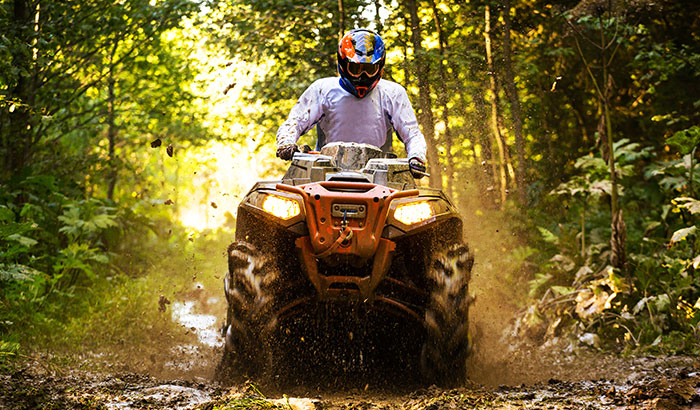The answer is yes. Even though UTVs have a roll cage, accidents can still happen, and a good UTV helmet can save your life. While open-face ATV helmets may not offer as much protection as full-face helmets, they are still a better alternative to not wearing a helmet at all. Here's why.

UTVs are often used for recreational purposes, such as off-road racing, hunting, or camping. The terrain can be unpredictable, and riders can encounter steep inclines, sharp turns, and obstacles. In the event of an accident, a UTV helmet can prevent serious head injuries.
The roll cage on a UTV may protect the driver and passengers from the impact of the crash, but it cannot prevent the head from hitting hard surfaces or objects. A helmet can absorb the shock and protect the skull from fractures and brain injuries. Open-face ATV helmets cover the top, back, and sides of the head, as well as the forehead, but leave the face open. This can be an advantage in hot weather or for riders who wear glasses, but it also exposes the face to debris, bugs, and branches.
Some UTV riders argue that they don't need a helmet because they drive at low speeds or on flat terrain. However, accidents can happen unexpectedly, and even a minor collision can cause head injuries. Moreover, UTV helmets provide other benefits besides protection. They can reduce wind noise, enhance vision, and make communication easier.
When choosing a UTV helmet, look for one that meets DOT (Department of Transportation) and/or Snell (Snell Memorial Foundation) standards. These organizations test helmets for impact resistance, penetration resistance, retention system strength, and other factors. A helmet that meets these standards will provide better protection than a cheap, uncertified helmet.
Open-face ATV helmets come in different sizes, shapes, and colors, so you can find one that fits your head and style. Look for features such as adjustable visors, removable liners, and ventilation systems. Some helmets also have Bluetooth connectivity, so you can listen to music, take calls, or communicate with other riders.
In summary, wearing a UTV helmet is essential for your safety and well-being while riding in a UTV. Open-face ATV helmets can provide adequate protection and comfort, while allowing some freedom and flexibility. Make sure to choose a certified helmet that meets your needs and preferences. Stay safe and enjoy the ride!